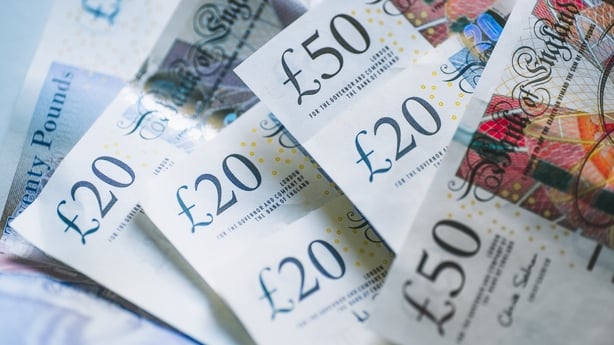Britain's new finance minister Rachel Reeves has today announced the biggest tax increases in three decades in her first budget, accusing the former Conservative government of breaking the country's public services.
She also paved the way for higher borrowing for long-term investment to speed up Britain's economy, which has been slow since the 2007-09 global financial crisis which was followed by the shocks of Brexit, Covid and soaring energy prices.
But Reeves - a former Bank of England economist who said she was proud to be the first female chancellor of the exchequer - stressed she would not let public debt balloon, mindful of how former Conservative Prime Minister Liz Truss sent the bond market into a tailspin in 2022 with her unfunded tax cut plans.
Initial reaction to her speech suggested investors were largely unfazed by the Labour Party's first economic programme since it won a landslide election victory in July.
British government bond prices rose as Reeves addressed parliament and sterling was up slightly against the US dollar. However, bond prices fell later in the day.
Reeves said she would raise taxes by £40 billion a year, much of it paid by businesses and the wealthy, and she blamed the Conservatives for leaving her Labour Party with a "black hole" in the budget.
"Any Chancellor standing here today would face this reality," Reeves said in her budget speech.
"And any responsible Chancellor would take action. That is why today, I am restoring stability to our public finances and rebuilding our public service," she said.

She painted a grim picture of Britain with health service waiting times at record levels, children studying in crumbling schools and dysfunctional transport and justice systems.
"The country has inherited not just broken public finances, but broken public services too," Reeves said. "The British people can see and feel that in their everyday lives."
In a disappointment for Reeves and Starmer, forecasts by the budget watchdog showed the economy was expected to grow by less than previously forecast in the last three years of its projection period after outperforming slightly in 2024 and 2025.
Showing the scale of the new tax increases on top of those of the previous government, Britain's budget watchdog said Reeves' plans would take the government's tax take to a historic high of 38.2% of economic output by the end of the decade.
That would be up from 36.4% now year and more than 5 points higher than before the pandemic.
Read more
Key measures in UK Labour Party's first budget in nearly 15 years
According to the Institute for Fiscal Studies think-tank, tax hikes of £40 billion would be equivalent to 1.25% of economic output, surpassed in recent history only in 1993 by a budget plan under the Conservatives which raised taxes to shore up the public finances after a recession and currency crisis.
Prime Minister Keir Starmer had warned "those with the broadest shoulders" will have to pay more tax in order to spare "working people."
Taxes up for businesses and the wealthy
Reeves said she would raise the rate of social security contributions paid by employers by 1.2 percentage points to 15% from April next year, and lower a threshold at which firms start to pay it - moves which would raise an extra £25 billion a year in five years' time.
Company bosses have warned that higher taxes on them, combined with planned new protections for workers and an increased minimum wage, could undermine Labour's promises to turn Britain into the fastest-growing Group of Seven economy.
Reeves announced a string of other revenue-raising moves including changes to the tax on capital gains and inheritances and tax paid by private equity executives and non-domiciled residents as well as users of private jets and private schools.
But she ruled out making more individuals pay basic and higher income tax rates after a freeze on the threshold for payments expires in the 2028/29 tax year.
She also extended a freeze on fuel duty and cut a tax on draught pints served in pubs.
While Reeves pledged to cover day-to-day spending with tax revenues by the end of the decade, she said she would change another fiscal rule to allow for more borrowing, paving the way for £100 billion in investment over the next five years.
Reeves said the government will now target public sector net financial liabilities rather than public sector net debt excluding the Bank of England, with the aim of getting them falling as a share of the economy.
The latest forecasts showed the government was on course to borrow almost £142 billion more over the next five years compared with previous estimates.
Combined with higher taxes, the outlook for the economy remained difficult, Neil Birrell, Chief Investment Officer with Premier Miton Investors, said.
"It's likely that gilt and equity markets will view the package as not as bad as it could have been. But with the investment plans being long-term in nature, it doesn't feel like a budget for growth," he said.
Northern Ireland to get extra 1.5 billion pounds next year
Northern Ireland will get an extra 1.5 billion pounds next year as a result of the Westminster budget.
Around £1.2 billion will be for day to day spending with £270m for infrastructure investment.
UK Chancellor Rachel Reeves said the extra cash would allow investment in schools, housing and social care.
Another £45.8m is going to PSNI and to Executive programmes to tackle paramilitarism and organised crime.
The Northern Ireland Office has also had its budget increased by £10m for next year to pay the costs of public inquiries into the 1998 Omagh bombing and the murder of Belfast solicitor Pat Finucane and other legacy matters.
Additional reporting by Conor McCauley

